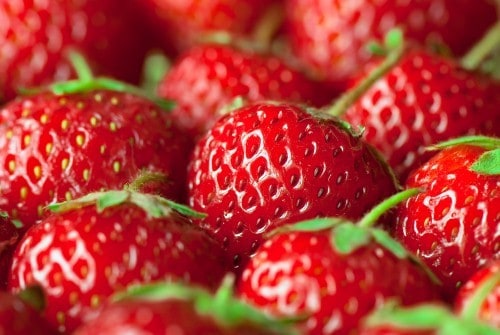Belgian fresh fruit and vegetable auctioneers Coöperatie Hoogstraten has worked with RFID technology supplier Aucxis to provide visibility and to track the movements of its strawberries throughout the supply chain. The system enables it to ensure fast and efficient delivery of its empty cardboard trays and punnets to growers for packaging the fruit. The berries are then tracked through the delivery of product to auction sites, stores and consumers.
The solution uses QR codes to track each cardboard punnet of fruit, linked to passive UHF RFID-tagged pallets for automated data capture about the product as it travels to stores. The solution was taken live last summer, in the midst of the pandemic, and launched in conjunction with the company’s transition from plastic to sustainable cardboard punnets, say reports in RFID Journal and Machinery Update.
The fresh produce wholesaler sells a variety of products to retailers across Europe and the UK via auction. The strawberries it sells originate from 223 Belgian and Dutch growers. It handles 56 million punnets and 7 million trays each year, it claims.
Previously the strawberries were tracked with a colour code printed on the side of plastic punnets, according to Jeroen Swolfs, Coöperatie Hoogstraten’s junior operations manager. To deliver fresh products on time, the company sends pallet-loads of empty punnets to growers as strawberries are harvested. When received the punnets are filled and then returned to the wholesaler’s site, where they are taken to an auction site and on to stores.
Each pallet contains 1,200 trays of berries, with 30,000 punnets on each pallet. Before the RFID and QR code system’s deployment, trays containing strawberries from different growers were placed on pallets until they were full and could be identified by their code. However, some customers did not want a full pallet, which meant a pallet had to be split, making the supply chain more complex.
“You can never tell exactly how many trays from which grower went to which customer,” Swolfs says. “This is a nightmare for accurate traceability. In the event of a recall there’s a lot of unnecessary product that has to be taken out of the market simply because specific information about each punnet is unavailable.” When the company shifted from plastic to cardboard punnets it saw an opportunity to improve tracking the identity of these containers.
The company chose a hybrid system using QR codes to identify every punnet and link it to a specific grower, and RFID tags to monitor the pallet on which cardboard boxes are stacked and transported. To achieve better traceability it worked with its cardboard and machinery supplier, Smurfit Kappa, which constructed a system to enable automated printing of QR code data on each punnet.
The pallet tag is read by Impinj readers mounted on forklifts, while the QR codes are scanned using cameras in ‘vision tunnels’, provided by VistaLink, according to Lauran D’hanis, Aucxis’s account manager. Aucxis’s Hertz middleware captures all data and each RFID tag’s ID number. It then manages the data, linking the pallet’s unique ID with the punnet ID. This information is forwarded to Coöperatie Hoogstraten’s enterprise resource planning software.
“We are already starting to think how we can implement RFID technology in our other logistics processes. If there is one thing we learned from the coronavirus crisis,” says Hoogstraten’s director Hans Vanderhallen, “it’s the growing interest of the consumer in short-chain fresh produce.”
Packaging 360 is a comprehensive knowledge sharing ecosystem for the Indian packaging industry. Our services include an online content platform to deliver news, insights and case studies; organising conferences seminars and customised training; Providing Bespoke Project Consulting, Market Research and Intelligence.







